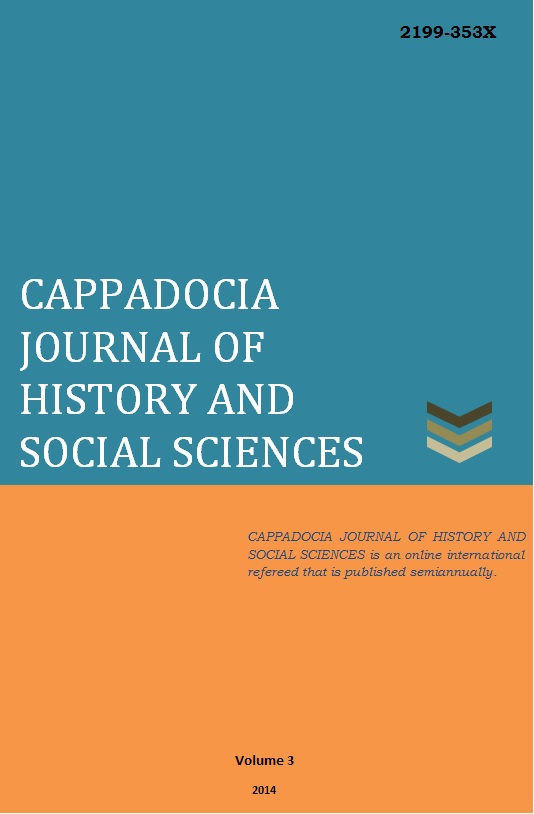Author :
Abstract
Semavi dinlerden ilki olan Yahudilik, mensubu olan insanların ekonomik hayatlarını etkilemekle kalmamış, onlarla ilişki içinde olan halkları da belirli şekillerde etkilemiştir. Ekonomik hayat, çok geniş konulara sahiptir. Ancak çalışma muhasebe odaklı olduğu için bazı sınırlamalara gidilmiştir. Yahudilerin en başarılı oldukları konulardan bir tanesi ticari hayattaki faaliyetleridir. Bu faaliyetlerin kaynağı olarak kutsal kitapları olan Tevrat incelenmiş ve ticari hayatla ilgili olan kısımlar muhasebe işlemlerine dayanak olacak hassasiyetle ortaya konmuştur. Faiz, ticari hayat gibi muhasebeyi etkileyen hususlardan bir diğeridir. Faizin Tevrat’taki durumu analiz edilmiştir. Vergi muhasebesi, vergilendirme sonrasında ortaya çıkan işlemleri konusu yapmaktadır. Başlı başına ayrı bir muhasebe konusu olan vergi olayları, çalışmanın konusuna dâhil edilmiştir. Çalışmada amaç olarak muhasebe ile ilgili olan ticaret, faiz ve vergi konularına ilişkin elde edilen somut bulgular ortaya çıkarılmaya çalışılmıştır.
Keywords
Abstract
As the first Divine religion, Judaism has affected not only the economic lives of its members, but also other people who are in relationships with its members in various ways. Economic life has a very broad topic, but this study is limited with the subject of the activities in business life of Jewish people, which is one of the most successful fields of them since it focuses on the accounting. Therefore, it is investigated the Torah (the first part of the Jewish bible and the central and most important document of Judaism) thoroughly as the source of their activities in business life and the related parts are sensitively put forward as the basis of the accounting actions. Besides, the subject of interest that is one another factor influencing the accounting as business life is analyzed in the Torah. The tax accounting contains within itself tax treatments occurring after taxation. The tax treatments which is a separate subject of accounting in itself is not included the context of this study. As a result, the aim of this study is to propose the tangible findings concerning the subjects of trade, interest and tax associated with the accounting.
Keywords
- ACAR, Durmuş, Nilüfer TETİK, (2009), Genel Muhasebe, 8.Baskı, Detay Yayıncılık, Ankara.
- AKALIN, Kürşat Haldun, (2011), “Reform Çağı Avrupasında Üretim Yâda Tüketim Maksatlı Borçlanma Tartışması”, Akademik Bakış Dergisi, Sayı:26, Eylül-Ekim 2011, CelalabatKırgızıstan.
- ARSLANTAŞ, Nuh, (2009), İslam Dünyasında İktisadi ve İlmi Hayatta Yahudiler, Marmara Üniversitesi, İlahiyat Fakültesi Yayınları, İstanbul.
- ATEŞ, OSMAN (2004), “Din Tahrifi ve İstismarı,” Çukurova Üniversitesi İlahiyat Fakültesi Dergisi, Cilt:4, Sayı: 2.
- BAYRAMOĞLU, Ertuğrul, (2006), Yahudilik ve Siyonizm Tarihi, Pınar Yayınları, İstanbul.
- BİLGE, Necip, (1954), Kefilin Alacaklıya Halef Olmasından Doğan Bazı Meseleler, Ankara Üniversitesi Hukuk Fakültesi Dergisi, Cilt:11, Sayı:1-2.
- CAN, A. Vecdi, KARABINAR, Selahattin, KÜÇÜKER, Metehan, (2012), “Kutadgu Bilig’de Muhasebe, Ticari Hayat ve Etik ile İlgili Beyitler ve Güncel Yorumu”, Muhasebe ve Finans Tarihi Araştırmaları Dergisi, Sayı: 2.
- CANOĞLU, Mehmet Ali, (1985), Vergi Muhasebesi, Marmara Üniversitesi Eğitim ve Yardım Vakfı, 2. Baskı, İstanbul.
- CİVELEK, Muzaffer, ÖZKAN, Azzem, (2006), Maliyet ve Yönetim Muhasebesi, Detay Yayıncılık, 4. Baskı, Ankara.
- DÖNER Ayhan, (1997), “Tarihsel Süreç İçerisinde İsrail Devlet Modelinin Ortaya Çıkışı”, Erzincan Üniversitesi Hukuk Fakültesi Dergisi, Cilt:1, Sayı:1.
- ERDOĞAN, ÖMER, (2010) Yahudilik Tarihi, Kalipso Yayınları, İstanbul.
- EROL, Işık, Sevgi, (2012), “İktisadi Kalkınmada Değerlerin Rolü (İbn-i Haldun’un Perspektifinden)” Çalışma İlişkileri Dergisi, Cilt: 3, Sayı: 2.
- GÜVEMLİ, Oktay, (1995), Türk Devletleri Muhasebe Tarihi Osmanlı İmparatorluğu’na Kadar, I.Cilt. Muhasebe Öğretim Üyeleri Bilim ve Dayanışma Vakfı Yayını No:1, Avcıol BasımYayım, İstanbul.
- İsrail Büyükelçiliği Basın Bürosu, (1976), İsrail’in Tarihi, Bugünkü İsrail Yayınları, (Seri Dışı), Ankara.
- KİTABI MUKADDES, (2001), Eski ve Yeni Ahit, (Tevrat, Zebur (Mezmurlar) ve İncil, Kitabı Mukaddes Şirketi, İstanbul.
- LASOR, William Sanford, HUBBARD, David Allan, BUSH, Frederich Wm., (2010), Eski Antlaşmaya Genel Bakış, Birinci Basım, İnkılap Kitabevi, İstanbul.
- HASANOV, Eldar, (2008), Metin Tahrifatı Bağlamında İbn Hazm’ın Tevrat’ı Eleştiri Metodu Üzerine, Marmara Üniversitesi İlahiyat Fakültesi Dergisi, Sayı: 35.
- MUTÇALI, Serdar, (1995), Arapça-Türkçe Sözlük, Dağarcık Yayınları, İstanbul.
- NORT M. (1981), The Deutoronomistic History, Sheffield Pres, Newyork.
- ÖZEN, Adem, (2001), Yahudilikte İbadet, Ayışığı Kitapları Yayınevi, İstanbul.
- SOMBART, Werner, (2005), Kapitalizm ve Yahudiler, Çev.: Sabri Gürses, İleri Yayınları, 2. Baskı, İstanbul.
- Türk Dil Kurumu Türkçe Sözlük, (1979) TDK Yayınları, 6. Baskı, Maya Matbaası.
- TORA ve AFTARA, (2012), Çev.: Moşe Farsi, Gözlem Gazetecilik Basın Yayın A.Ş.,
- YAZIR, Elmalılı M. Hamdi, (1999), (sadeleştiren: İlmi Araştırma Heyeti) “Kur’an-ı Kerim Türkçe Meali” İstanbul.
- http://incil.info/arama/Misirdan+Cikis+22 erişim: 20.10.2011.
- http://www.wordpocket.com/verses/tr/promises_12.htm erişim:12.11.2012





